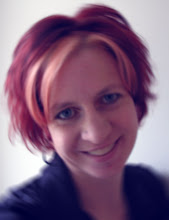I came across a great article in Monday's Chronicle of Higher Education titled, "Where are the Queens of Nonfiction?" by Anne Trubek. She takes issue with a book released last fall, edited by Ira Glass, called "The New Kings of Nonfiction." You have your big names: Malcolm Gladwell, Chuck Klosterman, Dan Savage. Curiously, two women have also been dubbed "kings": Susan Orlean and Coco Henson Scales.
I have to admit that I bought the book when it came out and didn't even think twice about the title. I'm so embarrassed. Trubek puts forth a good argument about how the title basically excludes an entire gender. We should always be wary of exclusionary language.
Then I realize I didn't think twice about the title perhaps because it's so ingrained in my mind that of course the new nonfiction stars would be "kings." How sad.
Nonfiction encompasses a wide spectrum, from standard reporting to more creative ventures that push genre boundaries. In "The New Kings," Glass pointedly defines the nonfiction in the book as more reportorial instead of essay.
Trubek wonders if this particular style of reportage skews more heavily toward men. I think it does. My favorite nonfiction is this style, an immersion-type of reportage where the writer lives and breathes a subject for a certain amount of time. Good examples of this are Talese, Conover, and Krakauer. As anyone knows, to do this you need a lot of time. You most likely need to travel. Your reporting might take you around the globe. Women may be more reluctant to pursue this type of writing because of the time involved, especially if the woman has a family. So it becomes a larger issue, an issue of gender/workplace. I've seen time and again women drop out of careers that involve long and strange hours. At The Free Press, women were a distinct minority in the newsroom (and still are). Talented women would drop out of the career as soon as they had children. Why is it up to the women to drop out? Why don't men make that choice?
Women succeed in the type of nonfiction that does not call for extended periods of time away from home. The essay and memoir demand reflection and rumination, which can be done from anywhere. But I would like to see more women pursue literary journalism. Let's add some diversity to that subset of creative nonfiction.
Tuesday, July 1, 2008
Subscribe to:
Post Comments (Atom)



No comments:
Post a Comment